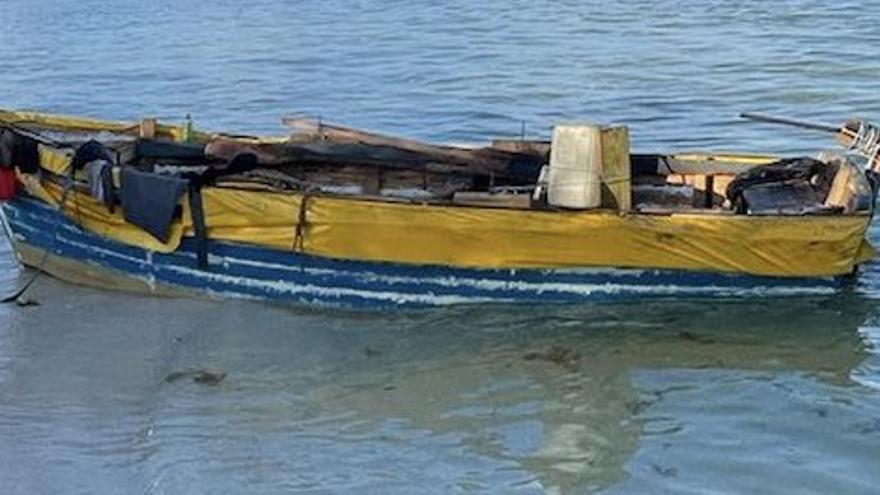
![]() 14ymedio, Madrid, 5 September 2022 — The U.S. embassy in Cuba warned on Sunday of the increase in surveillance in the Straits of Florida in the face of the unstoppable flow of people trying to reach the United States by that route.
14ymedio, Madrid, 5 September 2022 — The U.S. embassy in Cuba warned on Sunday of the increase in surveillance in the Straits of Florida in the face of the unstoppable flow of people trying to reach the United States by that route.
“The Joint Task Force of Homeland Security increased its operational position to deal with a recent increase in irregular maritime migration. Agencies are increasing patrols and law enforcement by land, air and sea, day and night,” the institution said on Twitter.
“People who try to enter the country illegally by sea will be intercepted and must wait to be repatriated to their country of origin, or to the country from which they left, in accordance with the laws, policies and obligations of the international treaties of the United States,” it added in a second message.
The warnings were issued a day after the Border Patrol detained 42 Cuban migrants off the coast of Florida. Walter N. Slossar, chief agent of the corps in the Miami sector, explained that 21 rafters made landfall in the Dry Tortugas, and another 21 arrived in Islamorada.
That same Saturday, the Coast Guard had suspended the search for a Cuban who disappeared in Islamorada after overturning a boat. With him were 20 people who were rescued and will be repatriated to Cuba, and four others who managed to make landfall.
Operations of this type do not cease, in any case. On Friday, September 2, the Coast Guard repatriated another 37 people from the Island, and in the third week of August the Border Patrol intercepted 96 Cuban rafters.
In total, from October 1, 2021 until last Friday, 5,113 Cubans have been intercepted. The figure is close to that of 2016, when the last major migration crisis occurred. In that period, 5,396 arrived in the United States, a number that could be exceeded in by the end of September, which will mark the end of this fiscal year.
In the last five years, the number of Cubans intercepted at sea by the U.S. authorities had decreased progressively, especially during the pandemic. In 2017, 1,468 arrived, in 2018, there were 259; in 2019, 313; in 2020, 49 and in 2021, 838.
The intention to increase surveillance in the area was communicated this Friday by the Southeast National Security Working Group in a document stating that the objective is to prevent the loss of life at sea.
“The Miami Sector of the U.S. Border Patrol is committed to working together with our federal, state and local law enforcement partners in an entire government-wide effort to prepare for and address any potential increase in irregular maritime migration or threats to border security in Florida,” Slosar said.
In addition, Brendan C. McPherson, director of the department and commander of the Seventh District of the Coast Guard, stressed that “illegal maritime travel in the Caribbean is always dangerous and often deadly.”
“The smugglers exploit vulnerable migrants for profit while putting their lives at risk on board overburdened boats that are unfit to sail. These dangerous trips should not be attempted. Safe, legal and orderly migration saves lives,” he added.
Translated by Regina Anavy
____________
COLLABORATE WITH OUR WORK: The 14ymedio team is committed to practicing serious journalism that reflects Cuba’s reality in all its depth. Thank you for joining us on this long journey. We invite you to continue supporting us by becoming a member of 14ymedio now. Together we can continue transforming journalism in Cuba.
